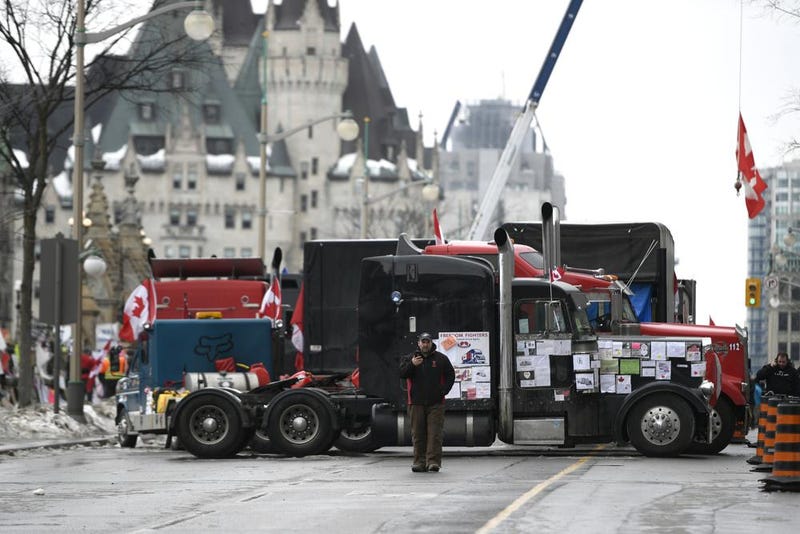
Buffalo, NY (WBEN) As the Ambassador Bridge blockade continued and with two days of weekend protests at the Peace Bridge in Buffalo, concerns over the impact on the auto industry from the resulting blocked commerce are heightened.
And it goes further, as there is also concern about other industries as a result of trucks not being able to bring parts across the border.
The Car Coach Lauren Fix says cross border traffic is integral to the auto industry. But there are other shortages than just car parts.
"We have a rubber shortage and what how does all that stuff get here from Canada, it comes from trucks," says Fix. "A lot of these cars, the sub assemblies and some of the cars are assembled in Canada, a lot of trucks are produced there. So if they can't get the parts of subcomponents across even engine parts from the US to Canada, that presents a problem." She says she was at the Chicago Auto Show last week. "It's one of the things I heard from a lot of manufacturers that this truck shortage is just another hot wet blanket on them getting cars out to dealerships," notes Fix.
Fix says the longer this standoff goes, the more the auto industry and other industries will be affected. "So we've already seen that Ford is shut down their production line. GM is doing the same thing, any of the US manufacturers, but remember a lot of the Japanese manufacturers, they produced product here too. So it's going to affect literally every car manufacturer," says Fix. She adds auto repair could be affected too. "I have a used car, I'm fine. But if you need a part for your car, you know anything from a mass airflow sensor to tires to wiper blades, whatever it might be. If it comes across the border, it's going to get slowed down," warns the Car Coach.
Fix suggests finding a place that has a good supply of tires and other auto repair needs.
Jeff Gilbert of Audacy Detroit's WWJ says the impact has already been felt. "There have been a number of plants that have had to cancel shifts and workers home early. There are even a couple of Toyota plants in Canada that have had to shut down for a couple of days," says Gilbert.
Gilbert says the auto industry is set up with North America as one market. "So parts freely cross the borders between the US and Canada, and the borders between US and Mexico," explains Gilbert. "perhaps a part made in Michigan will go to a plant in Windsor, Ontario, or a part made in Ontario will come to a plant in Michigan. Normally, that flows pretty easily. They've got it down to a routine. But with the border block, it's not happening. And in some cases, the car makers actually have to airlift parts," says Gilbert.

What's more expensive, airlifting parts or shutting down plants? "A lot of carmakers are trying to airlift parts to keep factories going. It's expensive, but it's not as expensive as shutting a plant now. But if this goes on for a while, the problems will continue to grow. And we'll see more than just shifts where workers are sent home, we may actually see some plants shutting down again. That's what the car makers are trying to avoid. But if this drags on, they may not be able to afford that," explains Gilbert.
The Freedom Convoy has been protesting vaccination mandates to cross the US-Canadian border.

